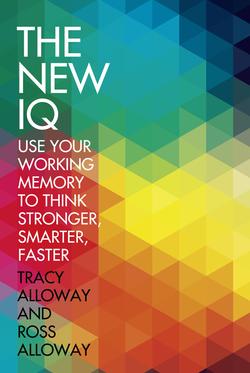Читать книгу The New IQ: Use Your Working Memory to Think Stronger, Smarter, Faster - Tracy Alloway - Страница 61
When Good Fortune Goes Bad
ОглавлениеIn this down economy, who hasn’t fantasized about winning the lottery? We certainly have. But should we beware of what we wish for? As you’ve probably heard, many people who win the lottery report later that they are no happier, and many ultimately find the large sums of money a burden rather than a blessing. This seems terribly ironic, but we think it may be related to interference with working memory and in a way that illuminates the role of working memory in impulsive behavior.
Take the case of Andrew Jackson “Jack” Whittaker whose $1 lottery ticket purchased at a gas station turned him into the biggest single U.S. lottery winner at the time: $314 million, which translated to a onetime payout of $113 million after taxes. If any lottery hopeful could handle a big win, you would think it would be Whittaker. He was already successful when he won. He had a net worth in the millions and was the president of a West Virginia–based contracting firm with more than one hundred employees.
In the flush of excitement, Whittaker pledged a portion of his winning to various organizations and set up a nonprofit organization to support low-income families. But it didn’t take long before careful planning gave way to unbridled extravagance. The man who had made his millions with hard work and self-control was now thrust into a world in which he had so much money that he seems to have lost sight of its value and of his control in spending it.
In the first year, he had already spent $45 million. His personal plan of spending time with his wife of over forty years and adoring granddaughter never came to fruition. Instead, the Washington Post quoted him as saying, “If they want quality time with me, they have to get up earlier or go to bed a lot later.” Between the trips to the racetrack and slot machines and buying property for development, it was no wonder he had less, not more, family time. And of course, Whittaker lived up to the stereotype of lottery winners by buying numerous cars and houses for himself, family members, and acquaintances. Five years after his win, he claimed that thieves had stolen a lot of money from him and that he was broke. He also had been charged with assault and drunk driving.
Although Whittaker’s tale is not unique when it comes to big-ticket lottery winners, it is uncommon that such a tale begins with someone who was already wealthy. The reason this is relevant here is that Whittaker’s case provokes the question: Why wasn’t someone with experience in managing large amounts of money better prepared to manage his winnings better than most other winners? What turned him into such an impulsive spender?
Wilhelm Hofmann, from the University of Chicago Booth School of Business’s Center for Decision Research, offers clues to the answer. He has spent several years researching decision making, impulsivity, and working memory. In a 2009 paper, he theorized a model of two significant influences in decision making—an impulsive system and a reflective system:
Impulsive system: This system is automatic, unconsidered, and hedonistic, and it encourages us to do whatever feels good.
Reflective system: This system is rational and involves strategic planning to achieve goals, deliberate judgment, and exercise of control. Hofmann directly links the strength of the reflective system with working memory.
Imagine that you’re stranded alone on a life raft at sea, and you’ve rationed your supplies to give yourself the best chance of survival. Among other items, you’ve got a few chocolate bars, and you know that you should limit yourself to just one square a day. But there’s a war going on inside your head. The impulsive system urges you to scarf down the whole chocolate bar—C’mon, you’re hungry. You need to eat the whole candy bar now. The reflective system cautions you to stick to one square a day—Don’t give in to temptation. Make it last. It’ll be better for you in the long run.
Whether you gobble up the entire bar or ration it out depends on the strength of your working memory. According to Hofmann, the stronger your working memory is, the better your reflective system is at controlling your impulsive system.
Prior to the unexpected windfall, Whittaker had to exercise financial restraint to ensure that he didn’t overspend. This required his Conductor to moderate spending by engaging the reflective system: I really want that mansion, but I can’t afford it. But after his lottery win, he was in a financial position where any shiny thing that caught his eye—from diamonds to speedboats—could be had without reflection. Because moderation of his spending was no longer required, his Conductor basically retired from its job, and the impulsive system reigned unchecked. As Whittaker’s self-control vanished, so did his lottery winnings. As one of Whittaker’s friends aptly observed to USA Today, the win “overwhelmed him … the more you have, the more difficult it is to resist temptation.”
